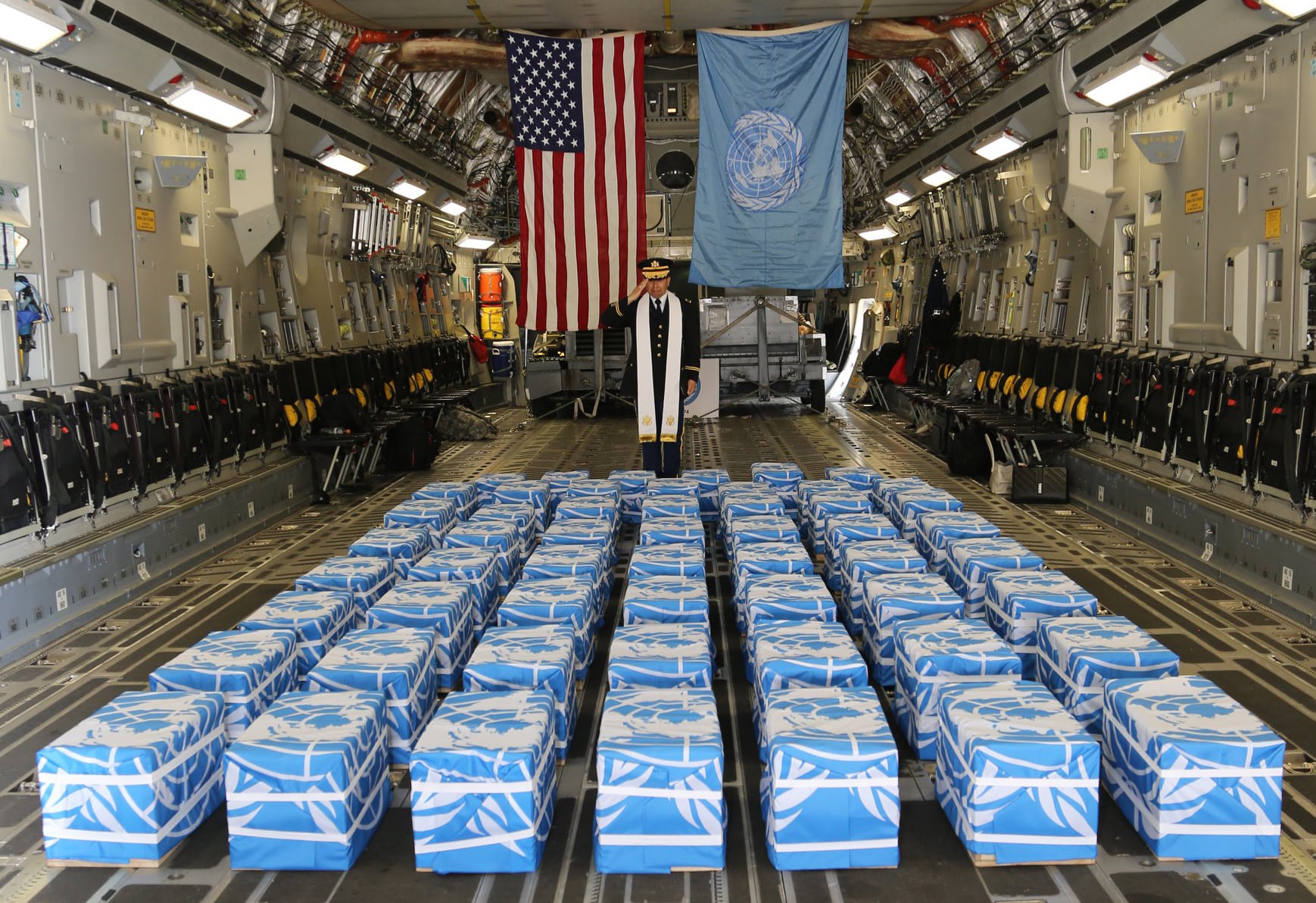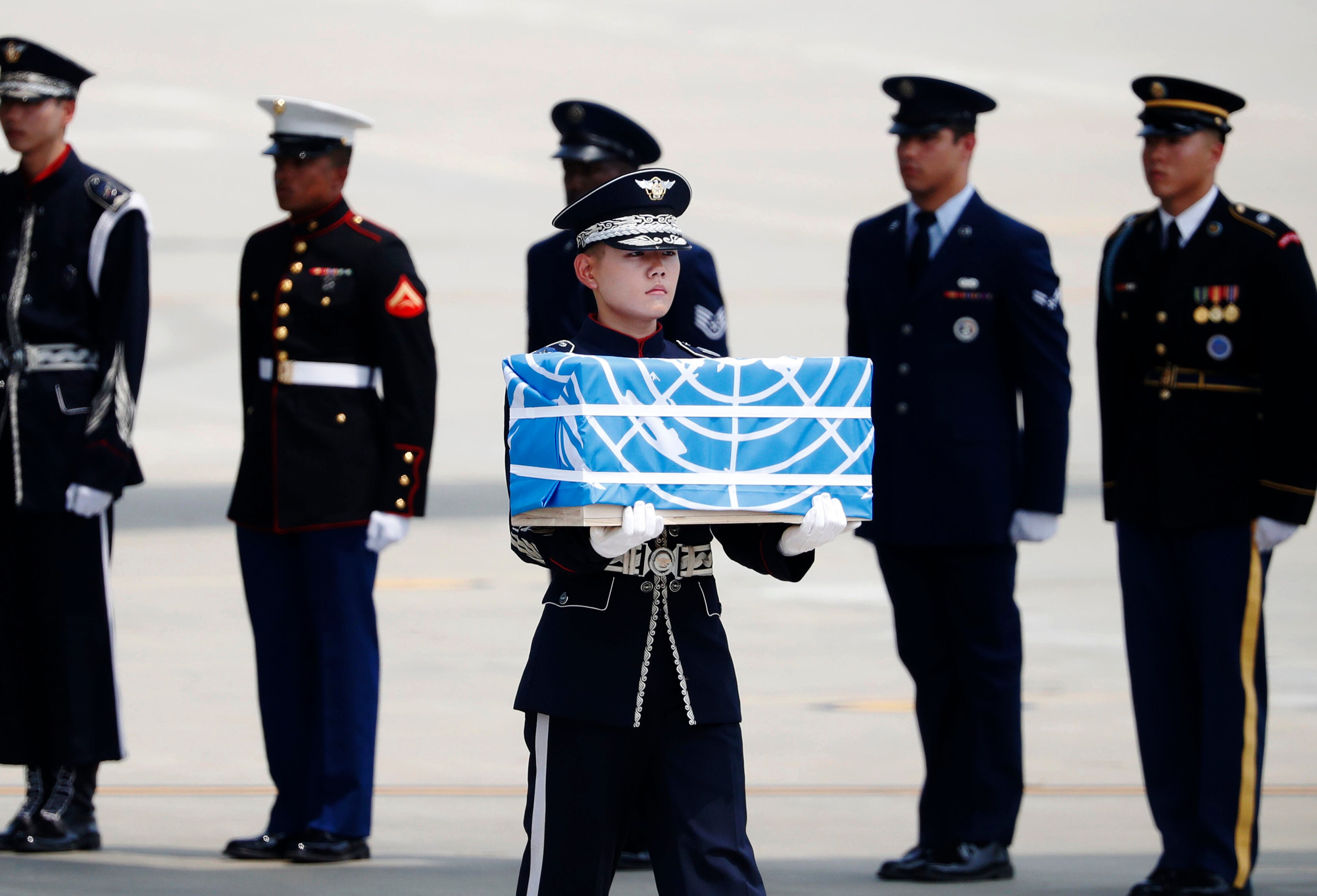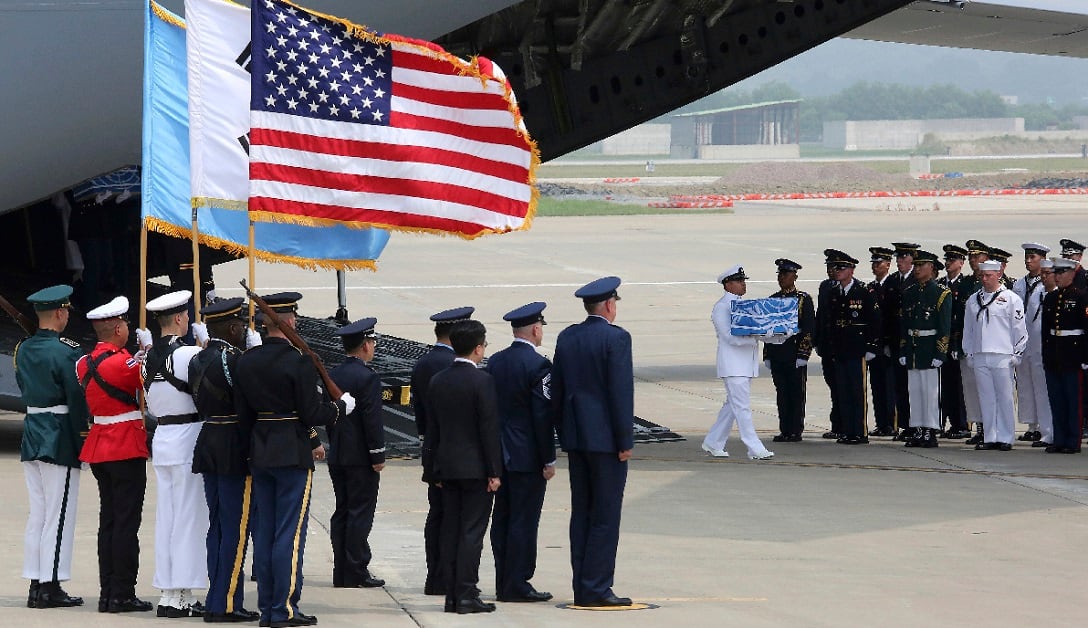Defense Secretary Jim Mattis met with Pentagon reporters Friday and took many questions on the return of possible war remains from North Korea. He spoke on what it means for military families who have never had closure, and how the U.S. will verify the remains are real.
Q: We’ve been working [for] years and years to get the remains back, what does it mean for you personally?
Mattis: “What it means for us. We have families, that when they got the telegram, have never had closure. They’ve never, you know, gone out and had the body returned. So what we’re seeing here is an opportunity to give those families closure. To make certain that we continue to look for those remaining.”
“By the way, you noticed it was a U.N. blue flag on each of the boxes. Many of the U.N. nations with us also have missing. We don’t know who is in those boxes. As we discover it, they will be returned. They could go to Australia, they have missing. France has missing. The Americans – there’s a whole lot of us. So this is an international effort to bring closure for those families.”
Q: Two years ago, North Korean officials offered to repatriate 200 remains. So, why only 55 caskets?
Mattis: “We can’t go back in and verify what the number they had was. We know what they said. But for us, we’ll simply say this is obviously a gesture of carrying forward what they agreed to in Singapore, and we take it as such. We also look at it as a first step in a restarted process. So we do want to explore additional efforts to bring others home, perhaps have our own teams go in.”
Q: Have the North Koreans provided any evidence that the remains they provided to the U.S. service members, and not, say, North Korean remains?
“The reason those remains aren’t on their way back to the United States right now, is, that they are first going to be reviewed initially there in Korea. and we’ll look for any anomalies where they’re not what we think they might be. And then the forensics will begin when we land them in Hawaii, where the laboratory is. But we have no indications that there is anything amiss. But we don’t know, we can’t confirm it one way or another. That is why we go through all of the forensics.”
RELATED

Q: You said earlier today there’s a possibility U.S. teams may eventually go into North Korea to look for additional remains?
Mattis: “That would be worked out. It certainly is something we’re interested in exploring with the North Koreans.“
Q: Does that mean that for the forseeable future there will be no joint wargames with South Korea?
Mattis: “No, it’s unrelated to that.”
Q: What’s the next step?
Mattis: “We’ll have to sort it out. Obviously we want to continue this sort of humanitarian effort.”

Tara Copp is a Pentagon correspondent for the Associated Press. She was previously Pentagon bureau chief for Sightline Media Group.




